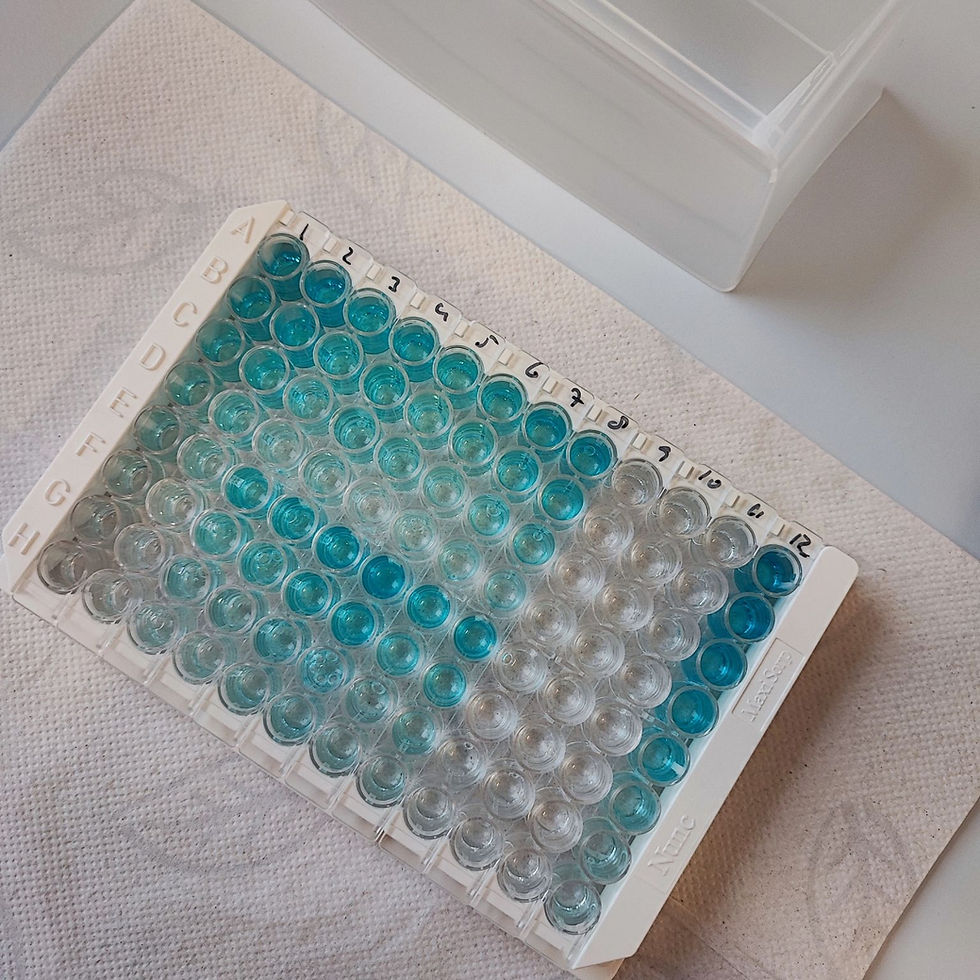New Tools for Immunology Research
- dianapauly
- Aug 1, 2025
- 2 min read
Press Release
EU Project SciFiMed Successfully Completed: From basic research to practical innovation
The EU-funded project SciFiMed ("Screening for Inflammation to Enable Personalized Medicine") aimed to advance our understanding of the human immune system, particularly focusing on the factor H protein family, a key group of immune proteins. Over the past four and a half years, under the leadership of Prof. Dr. Diana Pauly, a human biologist from Marburg, eight European partners have developed new research tools. These include four laboratory-based detection systems (ELISAs), currently employed in research studies revolving around kidney and eye diseases, as well as COVID-19 and delirium. To allow protein detection directly at the bedside, methods for rapid tests were explored, utilizing multiplex technology. Moreover, an innovative liposome-based test to measure complement system activity was created, along with new insights into molecular interactions of this protein family, offering potential therapeutic targets for the future. The European Commission funded this project with approximately 3.6 million euros.

"SciFiMed impressively demonstrates how fundamental research from various disciplines can complement each other," says Prof. Dr. Gert Bange, Vice President for Research at Philipps University Marburg. "Such projects not only enhance scientific exchange across Europe but also provide concrete momentum for the medicine of the future."
The Big Vision: Comprehensive Bedside Diagnostics
Behind the ambitious SciFiMed title lies more than just a play on "Science Fiction"—it represents a grand vision: a multifunctional biosensor capable of quantitatively and functionally analyzing seven immune proteins directly at the patient's bedside. Although this sensor remains futuristic, the project has laid essential groundwork through new assays, improved detection methods, and deeper biological understanding. Notably, the liposome-based complement test may replace conventional animal cell-based methods in the near future, replicating natural immune responses in vitro. "The project's strong market relevance and interdisciplinary approach demonstrate how quickly translational research can advance when analytical chemistry, biology, medicine, and industry collaborate," explains Diana Pauly.
Partners and Future Perspectives
Philipps University Marburg coordinated the project, contributing substantially to basic research, clinical studies, and communication management. The consortium, consisting of Universities in Regensburg, Madrid, Groningen, Budapest, Sanquin and companies such as Hycult and Microcoat GmbH, worked closely together on developing innovative assays, standard proteins, antibody production, rapid test development and market-ready rapid ELISA tests.
The effective collaboration within SciFiMed has driven significant advancements toward personalized medicine. Future joint initiatives are already planned to validate the developed tests further and to explore therapeutic applications based on newly identified interaction partners.
"SciFiMed exemplifies how visionary ideas can lead to concrete innovations in research and future healthcare," concludes Diana Pauly.
Image download: https://www.uni-marburg.de/de/aktuelles/news/2025/elisa

Comments